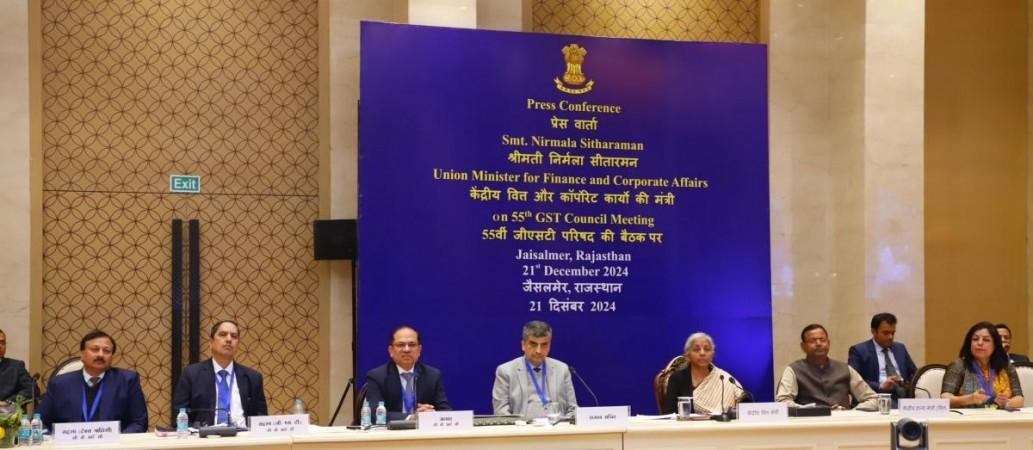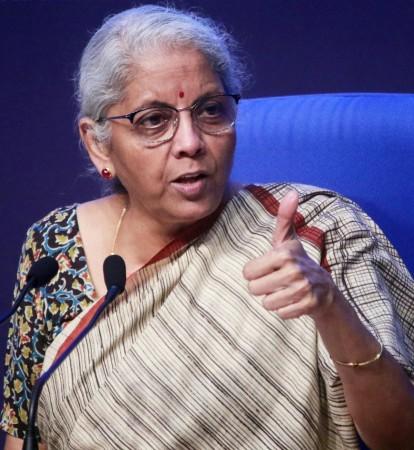55th GST Council meet Decisions: What You Need to Know

The 55th GST Council meeting, chaired by Union Finance Minister Nirmala Sitharaman, brought forth a series of key recommendations. The meeting, held in Jaisalmer, Rajasthan, was attended by Union Minister of State for Finance, Pankaj Chaudhary, along with Chief Ministers of Goa, Haryana, Jammu and Kashmir, Meghalaya, and Odisha, as well as Deputy Chief Ministers from Arunachal Pradesh, Bihar, Madhya Pradesh, Rajasthan, and Telangana. Senior officials from the Finance Ministry, including those from the Economic Affairs and Expenditure Departments, were also present.
One of the significant recommendations was the reduction of GST rate on fortified rice kernel (FRK) to 5 per cent. This move is expected to benefit the weaker sections of society as the commodity is supplied through the public distribution system (PDS). The Council also recommended the exemption of GST on contributions by general insurance companies from third-party motor vehicle premiums for the Motor Vehicle Accident Fund. This fund is constituted for providing compensation and cashless treatment to the victims of road accidents, including hit and run cases.
The Council also clarified that no GST is payable on ‘penal charges’ levied and collected by banks and NBFCs from borrowers for non-compliance with loan terms. This clarification is expected to bring relief to borrowers who are penalized for non-adherence to loan conditions.
In a move to simplify the tax structure, the Council recommended no GST on the transaction of vouchers, stating they are neither supply of goods nor supply of services. The provisions related to vouchers are also being simplified. The meeting also decided to extend IGST exemption to systems, sub-systems, equipment, parts, sub-parts, tools, test equipment, software meant for assembly/manufacture of LRSAM system. This decision is expected to boost the manufacturing sector involved in the production of these systems.

The Council recommended an increase in the GST rate from 12 per cent to 18 per cent on the sale of all old and used vehicles, including EVs. This 18% GST rate will be applied on the profit margin, not the entire resale value. This move ensures fairness and prevents double taxation, which is key to transparency in the pre-owned EV market.
The Council also clarified that Autoclaved Aerated Concrete (ACC) blocks containing more than 50 per cent fly ash content will fall under HS 6815 and attract 12 per cent GST. It further clarified that pepper, whether fresh green or dried pepper and raisins when supplied by an agriculturist, is not liable to GST.
In a significant move to address tax evasion, the GST Council approved the implementation of a ‘Track and Trace Mechanism’ for specified evasion-prone commodities. This mechanism will involve the affixing of a unique mark on goods or packages to enable tracking throughout the supply chain.
The Council also approved issuance of clarifications through circulars to remove ambiguity and legal disputes in certain issues. This move is expected to reduce tax litigation and enhance ease of doing business. The Council has approved an amendment to the definition of prepackaged and labelled items intended for retail sale. The step is aimed at clarifying the definition for all goods as currently there is a lot of confusion on the issue.
The Council also deferred the decision to reduce the GST rate on insurance premiums due to pending comments of the regulator. The GoM had examined exempting insurance premiums for term life insurance policies from GST and also the premium paid by senior citizens for health insurance coverage.